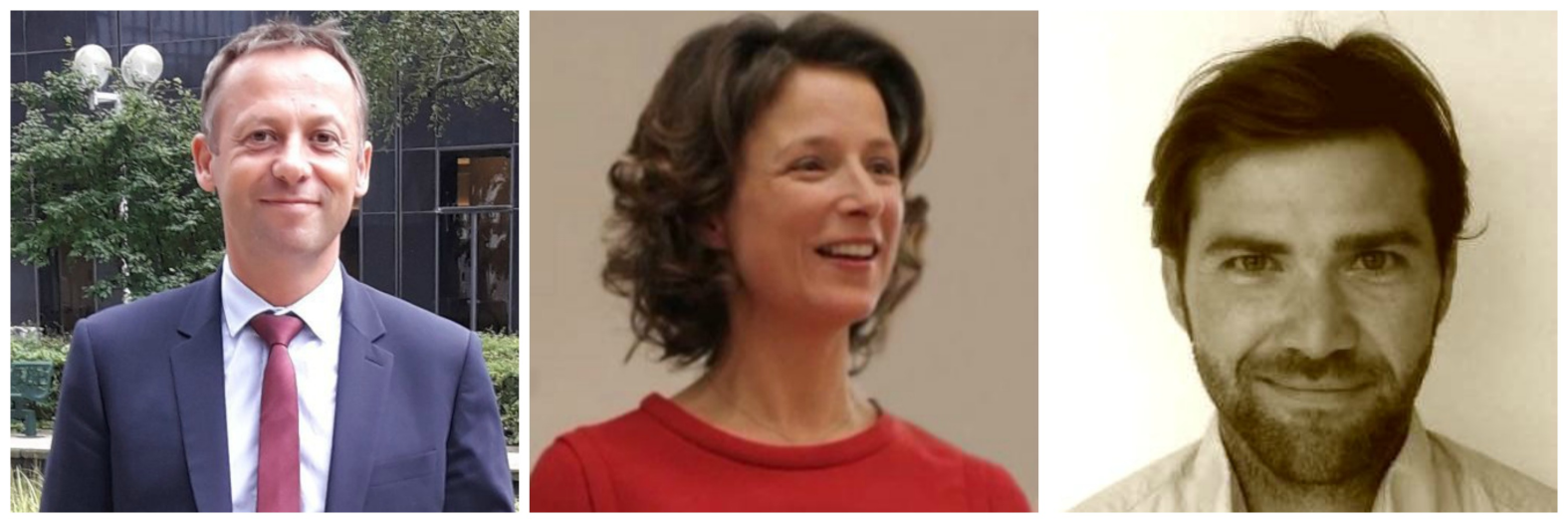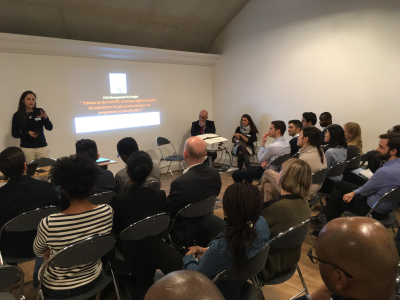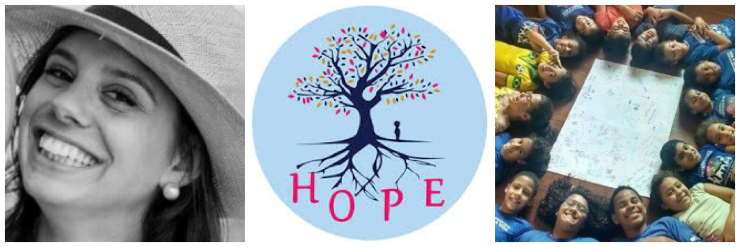News

Our experts’ take on Design Thinking and Agility, presented during the Project Management Club meetups in Lille and Paris!
We asked three experts who are passionate about agility and design thinking to share their story with us and talk about the trends and challenges associated with these approaches, which are increasingly shaping and fascinating companies: Aurélie Marchal (coordinator of the “Design Thinking as a Driver of Transformation” R&D lab at La Maison du Management and author of several books on the topic); Thomas Guilain (SK 2008), Innovation Project Manager/Assistant Project Manager for the Altera Group; and Jean-François Gore (SK 2009), IoT & E-commerce Consultant - ERP Consultant, Scrum Master at Carrefour for Cappa-Partners.
We take this opportunity to thank the 8 Project Management Club ambassadors for their involvement in the Paris and Lille clubs and to put a call out to alumni who might like to get involved in running the Lille club. Check out the photos from the Lille and Paris events!
Aurélie Marchal is an expert in innovation and collaborative and creative transformation through design thinking. After more than 10 years in the banking sector, mainly as an internal auditor, and after undergoing training in creativity, creative problem-solving (Créafrance), and design thinking (ENCSI-Les Ateliers in Paris), in 2012 she established am-designthinking, France’s leading consulting firm specialised in collaborative and creative transformation through design thinking. Her mission is to assist companies with reconciling quality of life in the workplace, the ability to offer their clients pertinent experiences that set them apart from the competition, and financial performance, while making the most of the opportunities presented by digital technology. More info
Thomas Guilain (SK 2008) is a consultant who specialises in innovation. He initially trained in human sciences and attended business school (SKEMA), but his varied experience in the banking, industrial, and social housing sectors, as well as in communication and project management, led him to collaborate on change management projects and lead project governance bodies. More info
Jean-François Gore (SK 2009) has accumulated over 20 years’ experience and 10 years of hands-on practice managing R&D projects for electronic systems in mobile phone manufacturing and managing telecom deployment projects (data centres, network infrastructure, etc.). After completing his MBA at SKEMA, he began managing cross-functional IT projects connected with change management in companies (ERP Supply-Chain, ERP Finance, e-procurement, e-commerce, IoT, M2M, API Management). It is worth mentioning also his recent participation in the management of the #Pikit project, an innovative connected-objects project with barcode scanning abilities and voice recognition to digitise Carrefour Drive customers’ shopping experience. More info
SKEMA Alumni: What should we remember about Design Thinking in 2018?
Aurélie: Design Thinking is a fashionable term, which tends to suggest that it is just a process that is simple to understand and therefore easy to implement. That’s hardly the case. Above all, design thinking is a mindset (that of designers) that is a far cry from the beliefs and reflexes we have all developed from early childhood right through to our working life: working together rather than working alone, those actually doing the work have at least as much to contribute as the decision-makers and experts, thinking about others instead of focusing on the self, thinking about human needs before thinking about processes, showing empathy rather than judging, challenging the initial question rather than trying to answer it as quickly as possible, looking for plenty of ideas rather than believing that there is only one solution and therefore stopping as soon as we have found one, giving ourselves permission to make mistakes, having the humility to know that we can’t think of everything and that we will have to test and improve as we go, communicating with feeling… When I assist with projects, the result is always twofold: a pertinent and actionable solution to a problem and a radical shift in mindset for everyone who took part in the project.
Thomas: On top of being a method that requires rigor and creativity, Design Thinking is, by definition, centred on the end-user of the proposed innovation. Technical feasibility, financial viability, and desirability are three criteria and ultimate goals that guide the creation process. To me, it’s a mental attitude that we must duplicate in all of our projects to get as close as possible to the needs of our clients.
SKEMA Alumni: And about agile methods?
Jean-François: “Agile method” doesn’t mean starting straight away without a “framework”. On the contrary. The project definition phase, which leads to the “Executive” level of clearly establishing the ambitions and to the programme/project of clearly defining the scope and objectives is essential and must be done very carefully. It’s only from this work that we can derive the Epics, Features and User Stories that will be the prioritised items in the backlogs. The challenge then consists in delivering Epics that have been validated by the relevant governance points, Features that are shared and accepted by the domain experts, and User Stories that are deemed “Ready” for the developers. All of this is synchronised with the other projects and teams involved.
SKEMA Alumni: Can you give us a concrete example of an application you worked on in 2017?
Aurélie: I had the pleasure of designing a workshop for the 450 senior executives at Ponticelli. Here is the result: “Even though I was rather sceptical (fearing a new form of brainstorming with no real added value), I was literally thrilled by design thinking and by the professionalism of the method you are developing. Within the set time frame, our group was able to fine-tune a new idea while anticipating objections and preparing its experimentation phase. The first discussion phases enabled us to obtain an empathic, collaborative atmosphere and the strict and pertinent time schedule forced participants to produce only discussions with added value. This experience is encouraging me to put this method into practice and even to revise the way meetings are sequenced.” François Lefebvre, CEO of Ponticelli
Thomas: I got to assist a social landlord in their deliberations to define the ultimate goals and details of their organisation, the objective being to instil the project culture and a cross-functional mode of operation. The advantage of Design Thinking is that right from the design phase you can include end-users in the process so that they can drive the change process rather than just having it forced upon them. With resistance lessened, the new organisation is much easier to roll out. It is essential to include in this method three criteria which are both objectives and regulating principles: the financial viability of the project, with profitability as the aim. The technical or organisational feasibility to keep the project realistic. And lastly, desirability: if the idea appeals to the end-users, then they are more likely to embrace the project.
Jean-François: This year I got the chance to work on the Pikit project (Carrefour e-commerce) and to act as Scrum Master to the Carrefour “shopping list” development team. I got to experience first-hand the strength of a team that is autonomous in its organisation and in its commitments vis à vis the domain expert.
SKEMA Alumni: How would I go about implementing this approach in my business/company/on a specific project?
Aurélie: You have to start with a specific problem, whatever it may be (any problem for which you are seeking a solution can be approached using design thinking), and identify all of the people affected by this problem – without leaving out anyone on the pretext that they are not senior or important enough. For example, if we are looking at the security of premises, we must not leave out the cleaner. Next, you need to determine your level of ambition in terms of the objective (solution/breakthrough innovation, incremental innovation or improvement). You will then be in a position to contact a design thinking expert to assist you. Taking your budget into account, you will work with them to determine the project team, the project sequence, the timeline, the deliverables, and any assistance required during the deployment phase (ad hoc coaching).
Thomas: Design Thinking implementation puts the way the classic project modes work back into perspective. At the same time, it isn’t meant for routine projects, which is why I recommend using it for a specific project with an innovative aspect, to prove its usefulness and effectiveness before making it more systematic.
Jean-François: Train the managers and teams, identify agile coaches to assist with the projects (the teams, the streams), identify the benefits, establish the trajectory and create the implementation schedule, recruit the right profiles, start with shared (understood and accepted) backlogs with the development teams, organise the autonomy of the development teams to deliver the backlog user stories, organise the management of the releases (and of the company’s tools) for continuous deployment and on-demand… you have to establish a complex plan but with an unfailing determination to move towards continuous development and the on-demand deployment of the production versions using a DEVOPS approach. These are big changes to implement… I am SAFe certified; I advise project and programme managers to look into Agile certifications to really familiarise themselves with and take into account the many aspects of a project/programme implementation in Agile mode.
To continue the discussion: https://designthinking.ideo.com/
and of course, contact our experts:
|
Thomas GUILAIN Altera Innovation |
Aurélie Marchal
www.am-designthinking.com |
|
|
Jean-François Gore Cappa-Partners |




